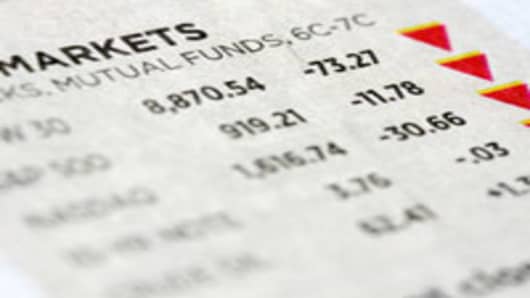With economic data heading south, the Greek debt crisis and China raising rates, stocks have been under pressure, having for months managed to shrug off a wall of worry.
Analysts at Sarain in Zurich have been questioning if all the bad news - which has been reflected in the dramatic fall in the Citigroup Economic Surprise Index (CESI), is pointing to more weakness for US stocks or an imminent recovery in for stocks.
“In June, the CESI dropped to its lowest level since the first quarter of 2009. At that time, and also most recently in August 2010, when the CESI was below -50, this was followed by a strong rally in equities,” Philipp Baertschi, the chief strategist at Sarasin, wrote in a note to clients.
Having witnessed the selloff in recent weeks, Baertschi believes it is hardly surprisingly that a number of sentiment indicators have declined and while a short-term rally could happen there is a major chance of a very difficult summer for stocks.
“Since the short-term, weekly or even daily market sentiment indicators can quickly turn, as they did in March/April, it is worthwhile taking a look at the medium-term indicators to gauge investors’ actual positioning and the true extent of their risk aversion,” he wrote.
Pointing to the latest Bank of America Merrill Lynch fund manager survey that showed fund managers reducing their overweight positions in stocks in the second quarter, Baertschi believes sentiment remains relatively strong.
“The net overweighting is currently on a par with the long-term historical average, but is well above the weighting after the last summer crash,” Baertschi said.
“While investor optimism is subdued, it is not broken. In other words, investors are still fairly complacent and have not lost faith in equities. This information tallies with the picture presented by the volatility indices which has not yet sent a buy signal because the markets have not, as yet, totally capitulated,” he said.
“This means that after a potential interim technical recovery, another wave of selling is to be expected in the absence of a sharp recovery in the macro data over the next one to two months,” Baertschi explained.
“If the ISM Index were to drop below 50 and remained at this level, it would mean that the equity markets would still need to correct by at least 10 percent from current levels,” he said.
“Generally, it is not a good idea to sell equities into a correction. The CESI analysis and the tactical indicators suggest a short-term recovery. But due to the macro data, investors are quite rightly feeling pessimistic and are likely to jettison further equities in a recovery. There is a risk – and it is a substantial one – that the global economy will recover only sluggishly or not at all from the current blip.”
“We therefore expect the downside risks to equities will remain elevated this summer,” Baertschi added.



